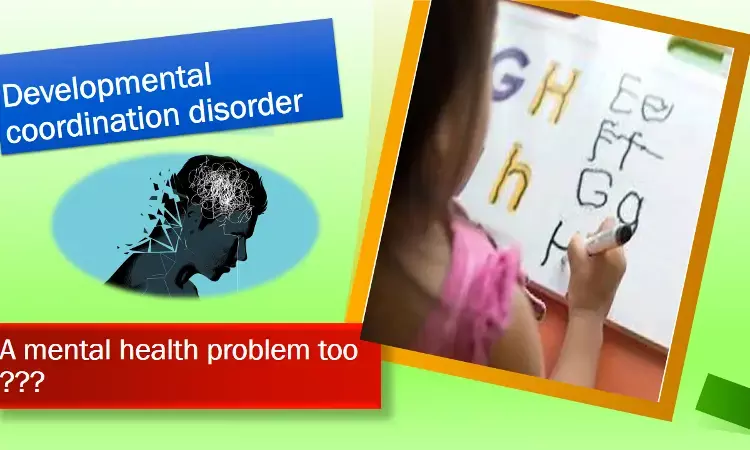- Home
- Medical news & Guidelines
- Anesthesiology
- Cardiology and CTVS
- Critical Care
- Dentistry
- Dermatology
- Diabetes and Endocrinology
- ENT
- Gastroenterology
- Medicine
- Nephrology
- Neurology
- Obstretics-Gynaecology
- Oncology
- Ophthalmology
- Orthopaedics
- Pediatrics-Neonatology
- Psychiatry
- Pulmonology
- Radiology
- Surgery
- Urology
- Laboratory Medicine
- Diet
- Nursing
- Paramedical
- Physiotherapy
- Health news
- Fact Check
- Bone Health Fact Check
- Brain Health Fact Check
- Cancer Related Fact Check
- Child Care Fact Check
- Dental and oral health fact check
- Diabetes and metabolic health fact check
- Diet and Nutrition Fact Check
- Eye and ENT Care Fact Check
- Fitness fact check
- Gut health fact check
- Heart health fact check
- Kidney health fact check
- Medical education fact check
- Men's health fact check
- Respiratory fact check
- Skin and hair care fact check
- Vaccine and Immunization fact check
- Women's health fact check
- AYUSH
- State News
- Andaman and Nicobar Islands
- Andhra Pradesh
- Arunachal Pradesh
- Assam
- Bihar
- Chandigarh
- Chattisgarh
- Dadra and Nagar Haveli
- Daman and Diu
- Delhi
- Goa
- Gujarat
- Haryana
- Himachal Pradesh
- Jammu & Kashmir
- Jharkhand
- Karnataka
- Kerala
- Ladakh
- Lakshadweep
- Madhya Pradesh
- Maharashtra
- Manipur
- Meghalaya
- Mizoram
- Nagaland
- Odisha
- Puducherry
- Punjab
- Rajasthan
- Sikkim
- Tamil Nadu
- Telangana
- Tripura
- Uttar Pradesh
- Uttrakhand
- West Bengal
- Medical Education
- Industry
Kids with Developmental Coordination Disorder at higher risk of mental health problems, IJP study

Developmental Coordination Disorder (DCD) is characterized by motor problems including significant difficulties in language, reading, arithmetic, and perceptual skills compared to their peers. Researchers Baskaran et al have now shown that these children with DCD are also at an increased risk of mental health difficulties as assessed by Health-related Quality of Life (HRQOL) scale used in their study that is now published in Indian Journal of Psychiatry.
Prevalence of DCD has been estimated to be 3.8% in 9–14-year- old children. Previous reports state that 58% of DCD adults aged around 22 years are suffering from anxiety and personality disorders. However, till date, very little is known concerning the impact on HRQOL in DCD children.
This study was conducted with 32 schoolchildren between ages 9–14 years, who were diagnosed with DCD. The Neuro QOL (filled by parents) is a sensitively designed tool used to assess the HRQOL in pediatric population; it consists of ten measures; eight targeted scales (anxiety, depression, anger, social interaction, fatigue, pain, cognition, and stigma); and two generic scales (upper and lower extremity function).
Results showed that DCD Children are significantly affected in domains such as lower and upper extremity function (fine motor and activities of daily living), social interaction, depression, anxiety, and cognition which can influence the HRQOL to a greater extent.
This research adds to the knowledge of awareness of DCD children and impact on their HRQOL. Using HRQOL questionnaires represents a step forward in the evaluation of treatment efficacy, these assessments can lead to better targeted interventions and more specific measures of response to treatment.
In order to provide comprehensive care for children with DCD, understanding issues in HRQOL is now a great concern, which will also help the clinicians to plan more holistic therapeutic targets and include treatments to improve the mental health and quality of life of these children beyond motor skill intervention.
Source: Indian Journal of Psychiatry: doi: 10.4103/indianjpsychiatry.indianjpsychiatry_1315_2
M.B.B.S, M.D. Psychiatry
M.B.B.S, M.D. Psychiatry (Teerthanker Mahavir University, U.P.) Currently working as Senior Resident in Department of Psychiatry, Institute of Human Behaviour and Allied Sciences (IHBAS) Dilshad Garden, New Delhi. Actively involved in various research activities of the department.
Dr Kamal Kant Kohli-MBBS, DTCD- a chest specialist with more than 30 years of practice and a flair for writing clinical articles, Dr Kamal Kant Kohli joined Medical Dialogues as a Chief Editor of Medical News. Besides writing articles, as an editor, he proofreads and verifies all the medical content published on Medical Dialogues including those coming from journals, studies,medical conferences,guidelines etc. Email: drkohli@medicaldialogues.in. Contact no. 011-43720751


